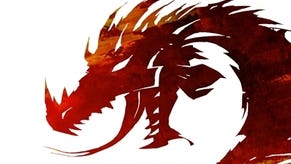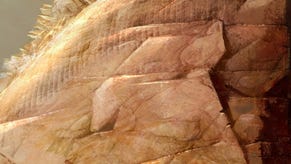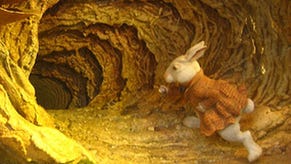Guild Wars: Factions
Lights! Camera! Faction!
I'm not sure if Guild Wars won or Guild Wars lost.
It got dismissed as "Not A Real MMO" by many MMO purists, which is normally a good sign you're onto something right. Purists, by definition, are the reactionary force anyone being creative has to kick against (And we'll move on from that before we segue into a neat character assassination of RPGCodex's reviewer of Oblivion). It sold a lot. And it really did sell a lot - as Kristan's excellent series of articles recently reported it was the only new franchise on the PC to move more than 100,000 units in 2005 in the UK. It innovated. It got people's backs up. It sold. Could you ask for more?
On the other hand, there's always that small "Six million people paying Blizzard tall dollars every month" figure which has completely changed the idea of what "success" actually means in the world of Online RPGs. Secondly, there's the small issue of its plan changing. Originally, when ArenaNet presented Guild Wars to the world, the idea was to sell things in a more episodic fashion, more regularly. It has abandoned that in favour of Factions, which takes the stand-alone expansion pack/New Game hybrid model in a similar way to City of Villains. Something changed in ArenaNet's plans, and that implies not all went as it had hoped.
Something's changed when you return to Guild Wars too. Despite the lack of any subscription fee, it has been tweaking and prodding the game in my absence and changing things in meaningful ways. If you haven't been here for a while, it's all new. For example, Guild Wars always gave you more flexibility in your character make-ups, allowing you to respecify your abilities regularly. Now, it's been changed to total flexibility, with your statistics being able to be swapped any-time you return to a non-combat area. RPG-fascists may have blood spurt in great fountains from a ruptured vein in their forehead at the very idea of such things, but it supports Guild Wars strengths. That is, being the Online-RPG which isn't afraid of being a game. A build won't work perfectly against anything, so sitting back and having a little rethink about what tactic to try next is ideal. It's especially important for the important PvP elements.
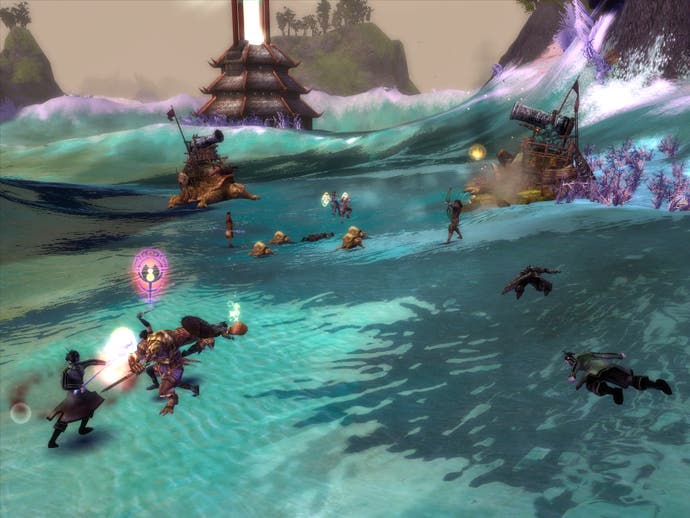
In terms of Factions itself, we're looking at a whole new entry point for the gamer. If you buy it in the shops, you can play its campaign by itself and enter the PvP duels. If you don't buy it, you can still play everything you already have in the original Guild Wars Prohecies pack. And if you buy both, you get a couple of extra-slots for new characters and can transfer your experienced characters from the old world to the new once a certain point is reached.
The two biggest additions are the two new classes - the Assassin and the Ritualist, both of whom are perfectly dual-classable with the original six archetypes. The Assassin is a swift-damage dealer-type, whose main offensive abilities are linked to the ability to chain attacks together. An Opening attack allows you to apply your off-handed attack abilities next and that in turn allows you to finish off with the dual-strike abilities (And then onto certain Elite skills). There's also an array of ninja-styled hit-and-run abilities, which leads them to be favoured by (say) anyone who likes to play Thief a lot. Not that I know any of them.
The Ritualist is primarily a summons-based class, which brings stationary spirits onto the battlefield to support the players for brief periods of time. Some, like the Pain, are obvious in their direct attacks against the opponents, but others support almost invisibly, absorbing attacks which would have otherwise have struck you down, and so on. Essentially, they either buff or attack via proxies. They're pretty neat too.
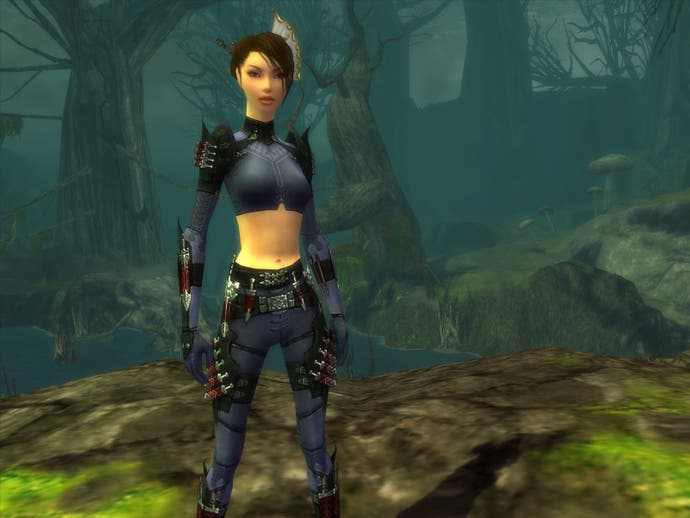
It also should be noted in passing that, yes, its character design remain the most ludicrously beautiful in existence. No matter who you fancy, expect to have your sexuality thoroughly questioned at least a couple of times in a play session.
The Factions campaign differs from the original in some key elements. Firstly, its setting is on a whole new continent with a more Eastern flavour, which echoes through the game's design. Secondly, they've got better at using their own engine. For example, while the game still has no desire to let you jump, the way the landscapes are arranged make it less immediately noticeable and atmosphere-disrupting. The environments are more diffuse, with a better eye on making them interesting spaces to explore (I was charmed earlier in the game by some artist having created a small cave littered with bones for a single Red Yeti spawn. Very cute). They take better advantage of what only Guild Wars allows, with NPCs joining your party, guiding you around and waves of opponents moving determinedly around the maps. Essentially, they know what they're doing better now, and it shows.
Less positively the game also amps up far quicker. While in the original campaign you'd have been roughly two thirds of the way through the content before you hit the level 20 level cap, here you'll be high in the teens after the second Mission proper if you've been taking your time. After that, you're already facing off against level 20 opponents. The reason for this is obvious - it's to make as much content as possible of use to previously existing characters transferred across. For established players, it's a good thing. If you're a newcomer to the world of Guild Wars, this rapid race through the levels gives you relatively little time to get used to its foibles and enjoy a more leisurely accumulation of power. Despite that Factions is generally better designed for newcomers (introducing elements far better than the original), this alone may make the original game the recommended entrance into Guild Wars.
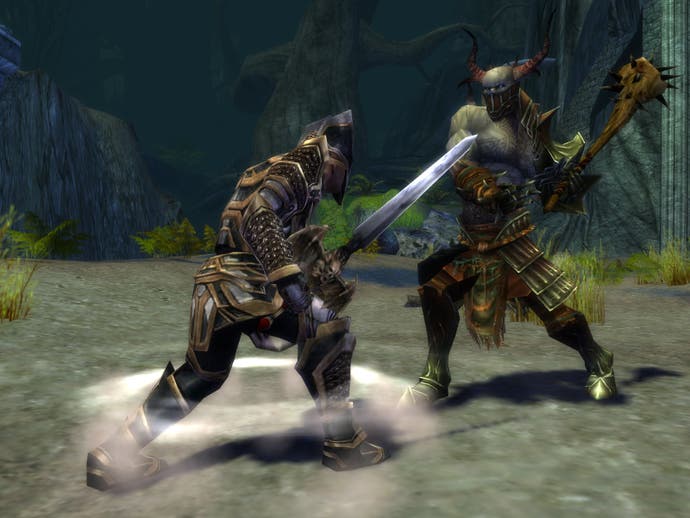
Well... at least for the Player-versus-Environment players. For someone who leans more towards the Player versus Player arena-based fisticuffs, Factions gains primacy. The main addition is the challenge system, where teams of four players go against carefully constructed computer players, which varies between a good challenge and actually turning Guild Wars into a puzzle game. The ability to redesign your characters is terribly welcome when working out how to (say) take down four Mesmers simultaneously. The basts. Victories in the arenas now earns you faction points, which can be spent on unlocking skills and bonuses - especially welcome for a pure-PVP player who has little desire to ever enter the Player-versus-Environment sections.
There's still some basic things it lacks, most obviously a decent in-game auction house for trading items, and a better teaming system for locating people interested in grouping, but it does keep a count on how long you've been playing and after a long session pops up a "You've been playing for four hours. Take a break". It's the 'Why Don't You?' of online-RPGs, and we thoroughly applaud such things.
Did Guild Wars win? Did Guild Wars lose? I'm still not sure. All I know is Guild Wars remains Good.
And that's all that really matters.


